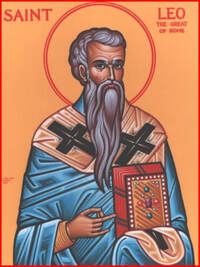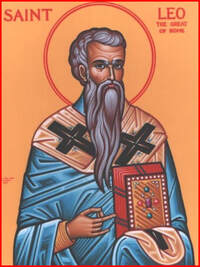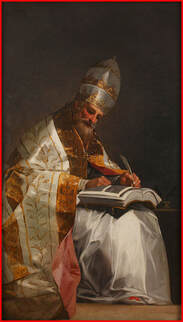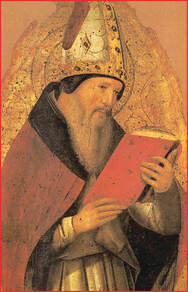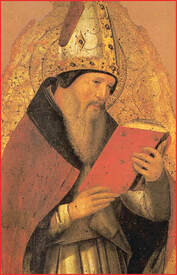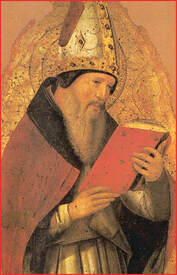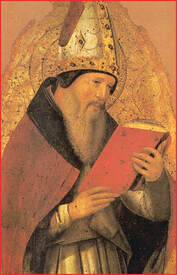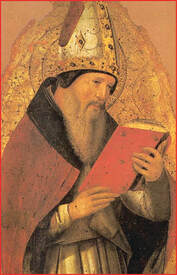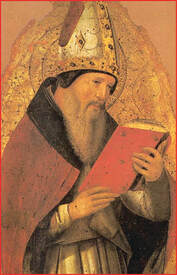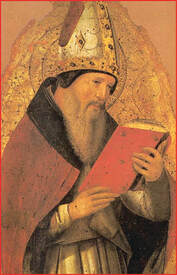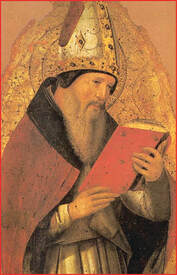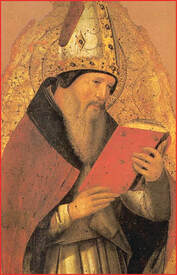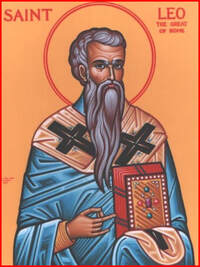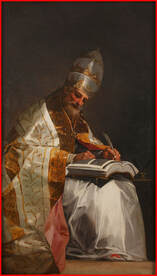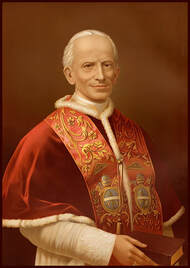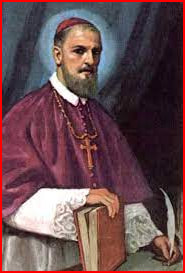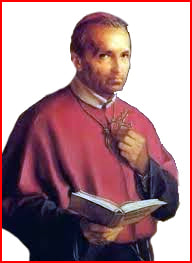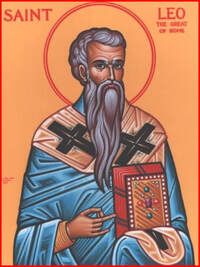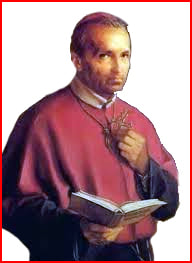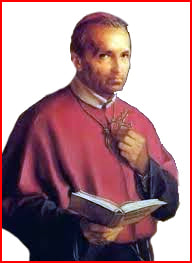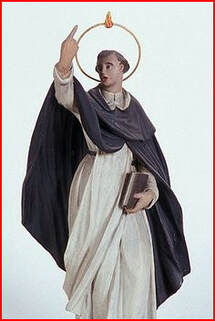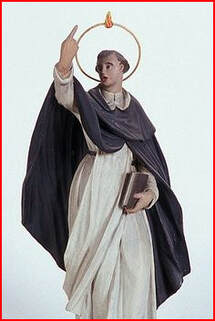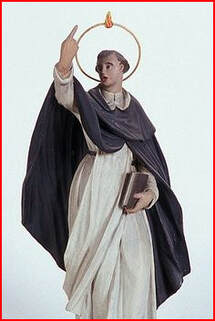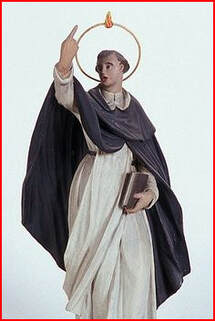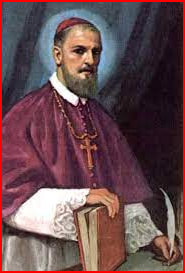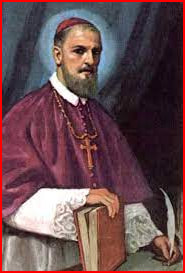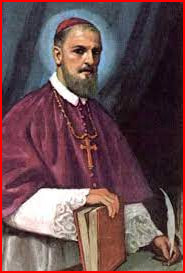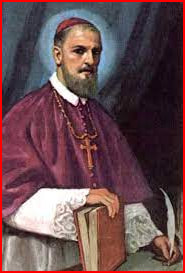| Devotion to Our Lady |
|
- Homepage
-
Daily Thoughts
- 2023 October Daily Thoughts
- Daily Thoughts Lent 2020
- Daily Thoughts for Advent 2019
- Daily Thoughts for October 2019
- Daily Thoughts for September 2019
- Daily Thoughts for August 2019
- Daily Thoughts for July
- Daily Thoughts for June
- Daily Thoughts for Easter 2019
- Daily Thoughts for Lent 2019
- Daily Thoughts for Christmas
- Daily Thoughts Easter 2022
- Consecration
- Easter Season
-
Spiritual Life
- Holy Mass Explained
- First Friday Devotions
- First Saturday Devotions
- The Mercy of God
- Vocations
- The Path Everyone Must Walk >
- Gift of Failure
- Halloween or Hell-O-Ween?
- Ignatian Spiritual Exercises >
- Meditation is Soul-Saving
- Spiritual Communion
- Miraculous Medal
- Enrollment in Miraculous Medal
- St. Benedict Medal
- Holy Water
- Advice on Prayer
- Your Daily Mary
-
Prayers
- September Devotions
- Seven Sorrows of Our Lady
-
Novenas
>
- NV-Help of Christians
- NV-Nativity of Our Lady
- NV-Seven Sorrows
- NV- Sorrowful Heart
- NV-Pope St Pius X
- NV-La Salette
- NV-St Michael Archangel
- NV-Immaculate Heart
- NV-Assumption
- NV-Novena for Fathers
- NV-Novena for Your Mother
- NV-St Raphael Archangel
- NV-Souls in Purgatory
- NV-All Saints Day
- NV-Christ the King
- NV-Divine Motherhood
- NV-Guardian Angels
- NV-Rosary
- NV-Mirac Med
- NV- Imm Conc
- NV - Guadalupe
- NV - Nativity of Jesus
- NV-Epiphany
- NV-OL Good Success
- NV-Lourdes
- NV-St Patrick
- NV-St Joseph
- NV-Annunciation
- NV-St Louis de Montfort
- NV-OL Good Counsel
- NV-Last Supper
- NV-Passion
- NV-Pentecost
- NV-Ascension
- NV-Sacred Heart
- NV-Sacred Heart & Perpetual Help
- NV-Corpus Christi
- NV-OL of Perpetual Help
- NV-Queenship BVM
- NV-OL of Mount Carmel
- NV-St Mary Magdalen
- NV- Im Hrt
- August Devotions to IHM
- Immaculate Heart of Mary
- Litany of Dependence
- Prayers to St Mary Magdalen
- Prayers in Times of Sickness Disease & Danger
- Holy Souls in Purgatory
- Meditations on the Litany of Our Lady
- Special Feast Days
- Prayers to Mary (Mon-Sun)
- Litanies to Our Lady >
- Various & Special Needs
- Our Lady of the Rosary
- Our Lady of Mt. Carmel
- Our Lady of Perpetual Help
- Our Lady of Guadalupe
- Other titles of Our Lady
-
Rosary
- Downloads
-
Holy Week
- Last Seven Words of Jesus >
- Characters of Passion >
- The Last Days of Christ
- Before Palm Sunday
- Palm Sunday
- Monday in Holy Week
- Tuesday in Holy Week
- Wednesday in Holy Week
- Holy Thursday (Last Supper)
- Holy Thursday (Agony & Arrest)
- Night Vigil with Christ
- Good Friday (Pilate & Herod)
- Good Friday (Way of Cross & Crucifixion)
- Saturday in Holy Week
-
Lent
- Ideas for Lent
- Daily Lenten Planner
- Daily Lenten Liturgy
- From Cold to Hot
- Lent with Aquinas
- Lent with Dom Gueranger
- Virtues for Lent
- History of Penance
- How Expensive is Sin?
- Confession of Sins
- Letter to Friends of the Cross
- Sermons for Lent
- Stations of the Cross >
- Lenten Prayers
- 7 Penitential Psalms
- Lenten Psalms SUN
- Lenten Psalms MON
- Lenten Psalms TUE
- Lenten Psalms WED
- Lenten Psalms THU
- Lenten Psalms FRI
- Lenten Psalms SAT
- Lenten Laughs
- Septuagesima
-
Christmas
- Epiphany Explained
- Suggestions for Christmas
- Food For Thought
- Christmas with Aquinas
- Christmas with Dom Gueranger
- Christmas Prayers
- Candles & Candlemas
- Christmas Sermons
- Christmas Prayers SUN
- Christmas Prayers MON
- Christmas Prayers TUE
- Christmas Prayers WED
- Christmas Prayers THU
- Christmas Prayers FRI
- Christmas Prayers SAT
- Twelve Days of Christmas >
-
Advent Journey
- Purgatory
- Christ the King
- Legion of Mary
- Scapular
- Sacred Heart
-
Saints
-
Martyrs for the Faith
>
- Your Daily Martyr >
- All 365 Days of Martyrs
- Cristeros
- St Valentine & Valentine's Day
- Martyrs--Thomas Becket
- Martyrs--John the Apostle
- Holy Machabees
- Age of Martyrdom
- Carmelites of Compiegne
- Martyrs--Peter & Paul
- Martyrs--John the Baptist
- Martyrs--Andrew
- Martyrs--James the Great
- Martyrs--North American
- Martyrs--Seven Holy Sleepers
- Martyrs--Afra
- School of Martyrdom
- Martyrs--Christina
- Desert Saints >
- Saints for Sinners >
- Saints of Mary >
- History of All Saints Day
-
Martyrs for the Faith
>
- Precious Blood
- Holy Ghost
- Synod 2023
-
Catechism
- Catechism Lesson 1
- Catechism Lesson 2
- Catechism Lesson 3
- Catechism Lesson 4
- Catechism Lesson 5
- Catechism Lesson 6
- Catechism Lesson 7
- Catechism Lesson 8
- Catechism Lesson 9
- Catechism Lesson 10
- Catechism Lesson 11
- Catechism Lesson 12
- Catechism Lesson 13
- Catechism Lesson 14
- Catechism Lesson 15
- Catechism Lesson 16
- Catechism Lesson 17
- Catechism Lesson 18
- Catechism Lesson 19
- Catechism Lesson 20
- Catechism Lesson 21
- Catechism Lesson 22
- Bible Study
-
Calendar
- Miracles
- Apparitions
- Shrines
- Prophecies
- Angels Homepage
- Hell
-
Church Crisis
- Conspiracy Theories
- Amazon Synod 2019 >
- Liberalism & Modernism
- Modernism--Encyclical Pascendi
- Modernism & Children
- Modernism--Documents
- The Francis Pages
- Church Enemies on Francis
- Francis Quotes
- Amoris Laetitia Critique
- Danger of Ignorance (Pius X)
- Restore all In Christ (Pius X)
- Catholic Action (Pius X)
- Another TITANIC Disaster?
- The "Errors of Russia"
- CRISIS PRAYERS
- Election Novena 2024
- The Anger Room
- War Zone
- Life of Mary
- Spiritual Gym
- Stupidity
- Coronavirus and Catholicism
- History & Facts
- Books
- Catholic Family
- Children
- Daily Quiz
-
Novena Church & Pope
- Day 01 Church-Pope Novena
- Day 02 Church-Pope Novena
- Day 03 Church-Pope Novena
- Day 04 Church-Pope Novena
- Day 05 Church-Pope Novena
- Day 06 Church-Pope Novena
- Day 07 Church-Pope Novena
- Day 08 Church-Pope Novena
- Day 09 Church-Pope Novena
- Day 10 Church-Pope Novena
- Day 11 Church-Pope Novena
- Day 12 Church-Pope Novena
- Day 13 Church-Pope Novena
- Day 14 Church-Pope Novena
- Day 15 Church-Pope Novena
- Day 16 Church-Pope Novena
- Day 17 Church-Pope Novena
- Day 18 Church-Pope Novena
- Day 19 Church-Pope Novena
- Day 20 Church-Pope Novena
- Day 21 Church-Pope Novena
- Day 22 Church-Pope Novena
- Day 23 Church-Pope Novena
- Day 24 Church-Pope Novena
- Day 25 Church-Pope Novena
- Day 26 Church-Pope Novena
- Day 27 Church-Pope Novena
- Day 28 Church-Pope Novena
- Day 29 Church-Pope Novena
- Day 30 Church-Pope Novena
- Day 31 Church-Pope Novena
- Day 32 Church-Pope Novena
- Day 33 Church-Pope Novena
- Day 34 Church-Pope Novena
- Day 35 Church-Pope Novena
- Day 36 Church-Pope Novena
- Day 37 Church-Pope Novena
- Day 38 Church-Pope Novena
- Day 39 Church-Pope Novena
- Day 40 Church-Pope Novena
- Day 41 Church-Pope Novena
- Day 42 Church-Pope Novena
- Day 43 Church-Pope Novena
- Day 44 Church-Pope Novena
- Day 45 Church-Pope Novena
- Day 46 Church-Pope Novena
- Day 47 Church-Pope Novena
- Day 48 Church-Pope Novena
- Day 49 Church-Pope Novena
- Day 50 Church-Pope Novena
- Day 51 Church-Pope Novena
- Day 52 Church-Pope Novena
- Day 53 Church-Pope Novena
- Day 54 Church-Pope Novena
- Penance Novena
- Daily WeAtheR Forecast
Throughout the Season of Christmas, we will post various sermons by the Saints, the Blessed, the Venerable or just popes, bishops and priests. These will cover some of the chief aspects of Christmas, its purpose, its customs, and its spirituality. May they bring you much inspiration and grace, while helping you spend the season in a truly profitable and fruitful manner.
CONTENTS
|
1. Pope St. Leo the Great, HOMILY FOR CHRISTMAS DAY
2. Pope St. Leo the Great, HOMILY FOR CHRISTMAS DAY 3. Pope St. Gregory the Great, HOMILY FOR CHRISTMAS DAY 4. St. Augustine of Hippo, HOMILY ON THE NATIVITY #1 (sermon 184) 5. St. Augustine of Hippo, HOMILY ON THE NATIVITY #2 (sermon 185) 6. St. Augustine of Hippo, HOMILY ON THE NATIVITY #3 (sermon 186) 7. St. Augustine of Hippo, HOMILY ON THE NATIVITY #4 (sermon 187) 8. St. Augustine of Hippo, HOMILY ON THE NATIVITY #5 (sermon 188) 9. St. Augustine of Hippo, HOMILY ON THE NATIVITY #6 (sermon 189) 10. St. Augustine of Hippo, HOMILY ON THE NATIVITY #7 (sermon 190) 11. St. Augustine of Hippo, HOMILY ON THE NATIVITY #8 (sermon 191) 12. St. Augustine of Hippo, HOMILY ON THE NATIVITY #9 (sermon 192) 13. Pope St. Leo the Great, HOMILY FOR THE EPIPHANY 14. Pope St. Gregory the Great, HOMILY FOR THE EPIPHANY |
15. Pope Leo XIII, ON THE HOLY FAMILY
16. St. Francis de Sales, ON MARRIAGE 17. St. Alphonsus Liguori, ON CHRISTMAS 18. Pope St. Leo the Great, HOMILY FOR THE EPIPHANY 19. Anonymous sermon on THE HOLY FAMILY 20. St. Bernard, IMITATING THE OBEDIENCE AND HUMILITY OF CHRIST 21. St. Alphonsus Liguori, ON THE GREATNESS AND LITTLENESS OF CHRIST 22. St. Alphonsus Liguori, COME TO YOUR SAVIOR 23. St. Vincent Ferrer, THE EPIPHANY (Part 1 of 5) 24. St. Vincent Ferrer, THE EPIPHANY (Part 2 of 5) 25. St. Vincent Ferrer, THE EPIPHANY (Part 3 of 5) 26. St. Vincent Ferrer, THE EPIPHANY (Part 4 of 5) 27. St. Vincent Ferrer, THE EPIPHANY (Part 5 of 5) |
SERMON 1
Pope St. Leo the Great
CHRISTMAS DAY
Pope St. Leo the Great
CHRISTMAS DAY
SERMON 2
Pope St. Leo the Great
CHRISTMAS DAY
Pope St. Leo the Great
CHRISTMAS DAY
SERMON 3
Pope St. Gregory the Great
CHRISTMAS DAY
Pope St. Gregory the Great
CHRISTMAS DAY
SERMON 4
St. Augustine of Hippo
FOR THE FEAST OF THE NATIVITY, #184
St. Augustine of Hippo
FOR THE FEAST OF THE NATIVITY, #184
SERMON 5
St. Augustine of Hippo
FOR THE FEAST OF THE NATIVITY, #185
St. Augustine of Hippo
FOR THE FEAST OF THE NATIVITY, #185
SERMON 6
St. Augustine of Hippo
FOR THE FEAST OF THE NATIVITY, #186
St. Augustine of Hippo
FOR THE FEAST OF THE NATIVITY, #186
SERMON 7
St. Augustine of Hippo
FOR THE FEAST OF THE NATIVITY, #187
St. Augustine of Hippo
FOR THE FEAST OF THE NATIVITY, #187
SERMON 8
St. Augustine of Hippo
FOR THE FEAST OF THE NATIVITY, #188
St. Augustine of Hippo
FOR THE FEAST OF THE NATIVITY, #188
SERMON 9
St. Augustine of Hippo
FOR THE FEAST OF THE NATIVITY, #189
St. Augustine of Hippo
FOR THE FEAST OF THE NATIVITY, #189
SERMON 10
St. Augustine of Hippo
FOR THE FEAST OF THE NATIVITY, #190
St. Augustine of Hippo
FOR THE FEAST OF THE NATIVITY, #190
SERMON 11
St. Augustine of Hippo
FOR THE FEAST OF THE NATIVITY, #191
St. Augustine of Hippo
FOR THE FEAST OF THE NATIVITY, #191
SERMON 12
St. Augustine of Hippo
FOR THE FEAST OF THE NATIVITY, #192
St. Augustine of Hippo
FOR THE FEAST OF THE NATIVITY, #192
SERMON 13
Pope St. Leo the Great
THE EPIPHANY
Pope St. Leo the Great
THE EPIPHANY
SERMON 14
Pope St. Gregory the Great
ON THE EPIPHANY
Pope St. Gregory the Great
ON THE EPIPHANY
SERMON 15
Pope Leo XIII
ON THE HOLY FAMILY
Pope Leo XIII
ON THE HOLY FAMILY
SERMON 16
St. Francis de Sales
ON MARRIAGE
St. Francis de Sales
ON MARRIAGE
SERMON 17
St. Alphonsus Liguori
ON CHRISTMAS
St. Alphonsus Liguori
ON CHRISTMAS
SERMON 18
Pope St. Leo the Great
ON THE EPIPHANY
Pope St. Leo the Great
ON THE EPIPHANY
SERMON 19
Anonymous Source
ON THE HOLY FAMILY
Anonymous Source
ON THE HOLY FAMILY
|
The Holy Family is the name given to the family unit of Jesus: The Divine Son of God, Jesus; His mother, the Virgin Mary; and his foster father, Joseph. We know very little about the life of the Holy Family through the canonical Gospels. The Gospels speak briefly of the early years of the Holy Family, including the birth of Jesus in Bethlehem, the flight into Egypt, and the finding of Jesus in the temple. Various non-canonical works, including the Infancy Gospel of Thomas, try to fill in the blanks. However, even though these apocryphal works may contain some truth derived from oral tradition, they have been deemed unworthy of canonical status because of the way they present Jesus. But while the exact details of the day-to-day life of the Holy Family may be unknown, we can still learn a lot from the stories we do have.
Devotion to the Holy Family is a recent development, but one that naturally grows out of a love for Jesus and His family. Devotion to the Holy Family grew in popularity in the 17th century, and several religious congregations have been founded under this title. The Holy Family also started being portrayed in popular art of the period. On October 26th, 1921, the Congregation of Rites (under Pope Benedict XV) inserted the Feast of the Holy Family into the Latin Rite general calendar. Until then it had been celebrated regionally (see History below). Popes before and including Benedict XV (especially Leo XIII) promoted the feast as a way to counter the breakdown of the family unit. The Feast of the Holy Family is not just about the Holy Family, but about our own families too. The main purpose of the feast is to present the Holy Family as the model for all Christian families, and for domestic life in general. Our family life becomes sanctified when we live the life of the Church within our homes. This is called the “domestic Church” or the “Church in miniature.” Saint John Chrysostom urged all Christians to make each home a “family church,” which sanctifies the family unit. Just how does one live out the Church in the family? The best way is by making Christ the center of family and individual life. Ways to do this include: reading Scripture regularly, praying daily, attending Mass at least on Sundays and Holy Days of Obligation, imitating the actions of the Holy Family, going to confession frequently, and so forth, all done together as a family unit. |
Saint Paul provides advice on family life in Colossians 3:12-21: “As God’s chosen ones, holy and beloved, clothe yourselves with compassion, kindness, humility, meekness, and patience. Bear with one another and, if anyone has a complaint against another, forgive each other; just as the Lord has forgiven you, so you also must forgive. Above all, clothe yourselves with love, which binds everything together in perfect harmony. And let the peace of Christ rule in your hearts, to which indeed you were called in the one body. And be thankful. Let the word of Christ dwell in you richly; teach and admonish one another in all wisdom; and with gratitude in your hearts sing psalms, hymns, and spiritual songs to God. And whatever you do, in word or deed, do everything in the name of the Lord Jesus, giving thanks to God the Father through him. Wives, be subject to your husbands, as is fitting in the Lord. Husbands, love your wives and never treat them harshly. Children, obey your parents in everything, for this is your acceptable duty in the Lord. Fathers, do not provoke your children, or they may lose heart.”
The Holy Family feast is a good time to remember the family unit and pray for our human and spiritual families. We can also use this feast as an opportunity to reflect on the value and sanctity of the family unit and to evaluate our own family life. What ways may it be improved? What would Jesus, Mary, and Joseph do? Finally, we can use this feast to ask ourselves what are we doing to promote the family within our own cultures, neighborhoods, and communities. In 1643 Louis and Barbe d’Ailleboust came to Canada in order to devote their lives to the welfare of the natives there. After her husband had passed away, Barbe, with the assistance of the Jesuit Father Chaumonot, founded the Confraternity of the Holy Family. The confraternity and devotion to the Holy Family spread all over Canada and had the effect of promoting good morals. Monsignor Franois de Laval invited her to Quebec, and gave her the general management of the confraternity, which still exists today. In 1675, the now Bishop de Laval had a little book printed in Paris instructing the members of the confraternity as to virtuous practices. Bishop de Laval also established the feast of the Holy Family, and had a Mass and office drawn up that are proper to the Diocese of Quebec. The feast was later added in 1921 to the general calendar of the Western Rite as a way to counteract the breakdown of the family. |
SERMON 20
St. Bernard of Clairvaux
HOMILY ON IMITATING THE OBEDIENCE & HUMILITY OF CHRIST
St. Bernard of Clairvaux
HOMILY ON IMITATING THE OBEDIENCE & HUMILITY OF CHRIST
SERMON 21
St. Alphonsus Liguori
ON THE GREATNESS AND LITTLENESS OF CHRIST
St. Alphonsus Liguori
ON THE GREATNESS AND LITTLENESS OF CHRIST
SERMON 22
St. Alphonsus Liguori
COME TO YOUR SAVIOR
St. Alphonsus Liguori
COME TO YOUR SAVIOR
SERMON 23
St. Vincent Ferrer
THE EPIPHANY
Part 1 of 5
St. Vincent Ferrer
THE EPIPHANY
Part 1 of 5
SERMON 24
St. Vincent Ferrer
THE EPIPHANY
Part 2 of 5
St. Vincent Ferrer
THE EPIPHANY
Part 2 of 5
SERMON 25
St. Vincent Ferrer
THE EPIPHANY
Part 3 of 5
St. Vincent Ferrer
THE EPIPHANY
Part 3 of 5
SERMON 26
St. Vincent Ferrer
THE EPIPHANY
Part 4 of 5
St. Vincent Ferrer
THE EPIPHANY
Part 4 of 5
SERMON 27
St. Vincent Ferrer
THE EPIPHANY
Part 5 of 5
St. Vincent Ferrer
THE EPIPHANY
Part 5 of 5
SERMON 28
St. Francis de Sales
THE PURIFICATION OF THE BLESSED VIRGIN MARY
Part 1 of 5
St. Francis de Sales
THE PURIFICATION OF THE BLESSED VIRGIN MARY
Part 1 of 5
SERMON 29
St. Francis de Sales
THE PURIFICATION OF THE BLESSED VIRGIN MARY
Part 2 of 5
St. Francis de Sales
THE PURIFICATION OF THE BLESSED VIRGIN MARY
Part 2 of 5
SERMON 30
St. Francis de Sales
THE PURIFICATION OF THE BLESSED VIRGIN MARY
Part 3 of 5
St. Francis de Sales
THE PURIFICATION OF THE BLESSED VIRGIN MARY
Part 3 of 5
SERMON 31
St. Francis de Sales
THE PURIFICATION OF THE BLESSED VIRGIN MARY
Part 4 of 5
St. Francis de Sales
THE PURIFICATION OF THE BLESSED VIRGIN MARY
Part 4 of 5
Web Hosting by Just Host

